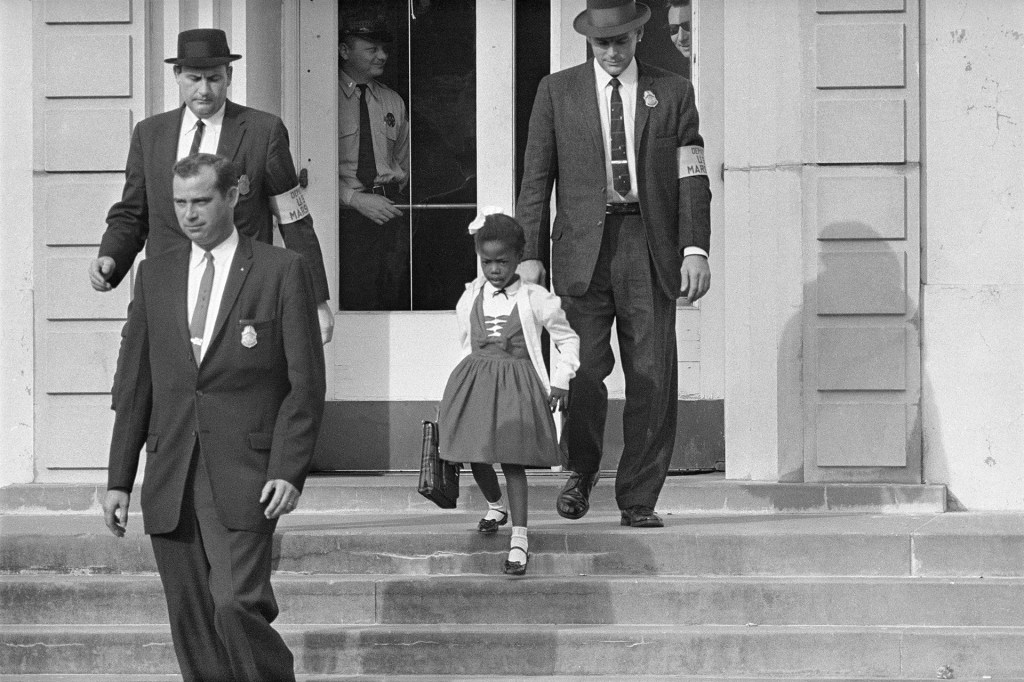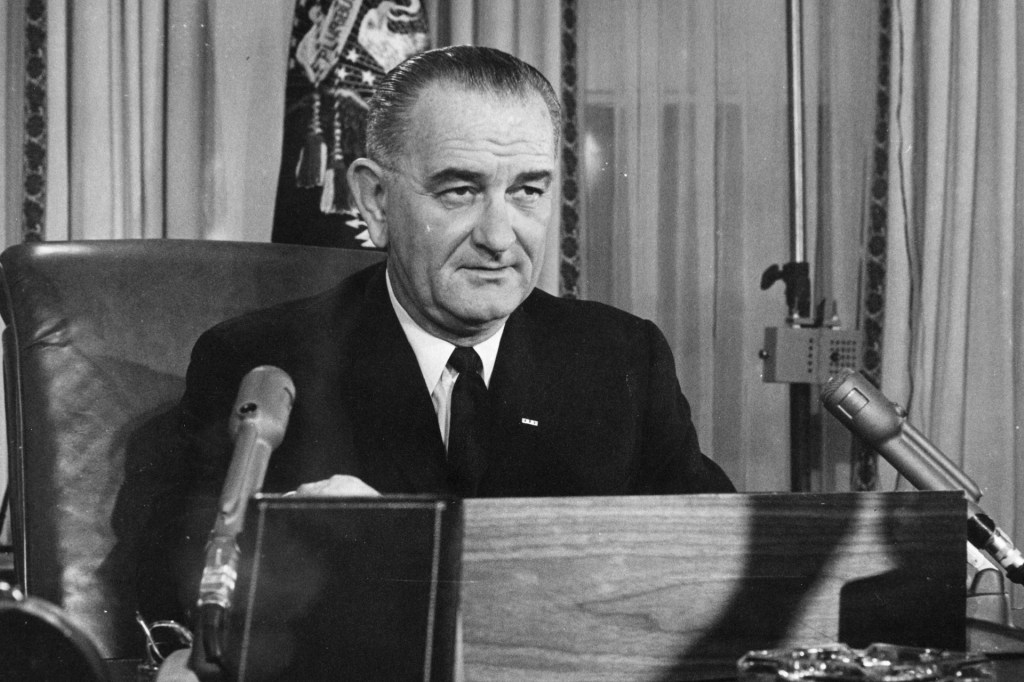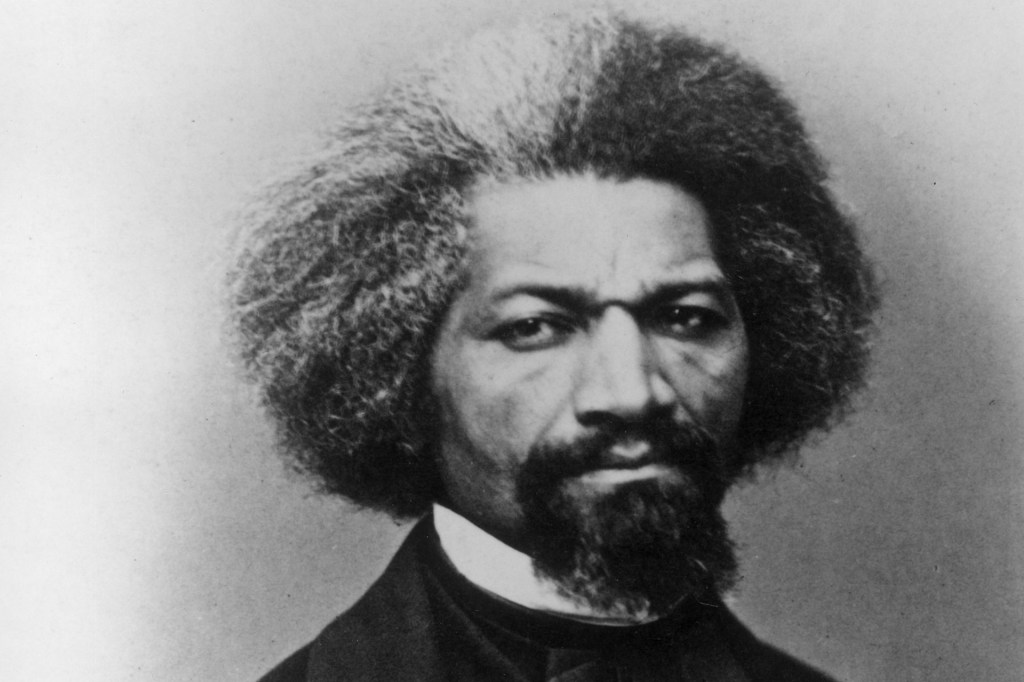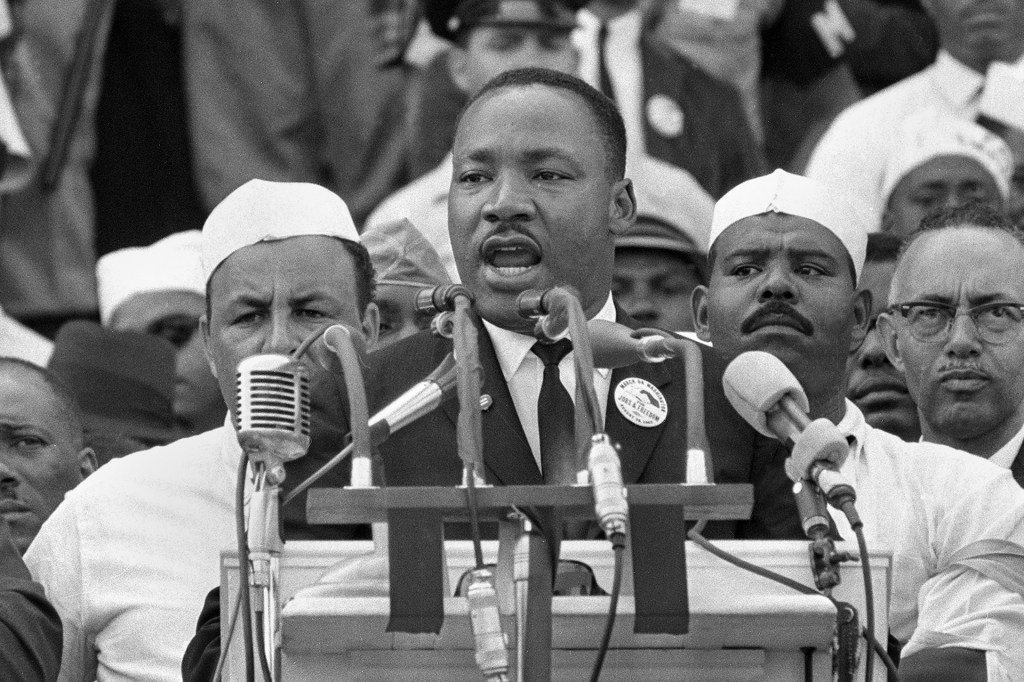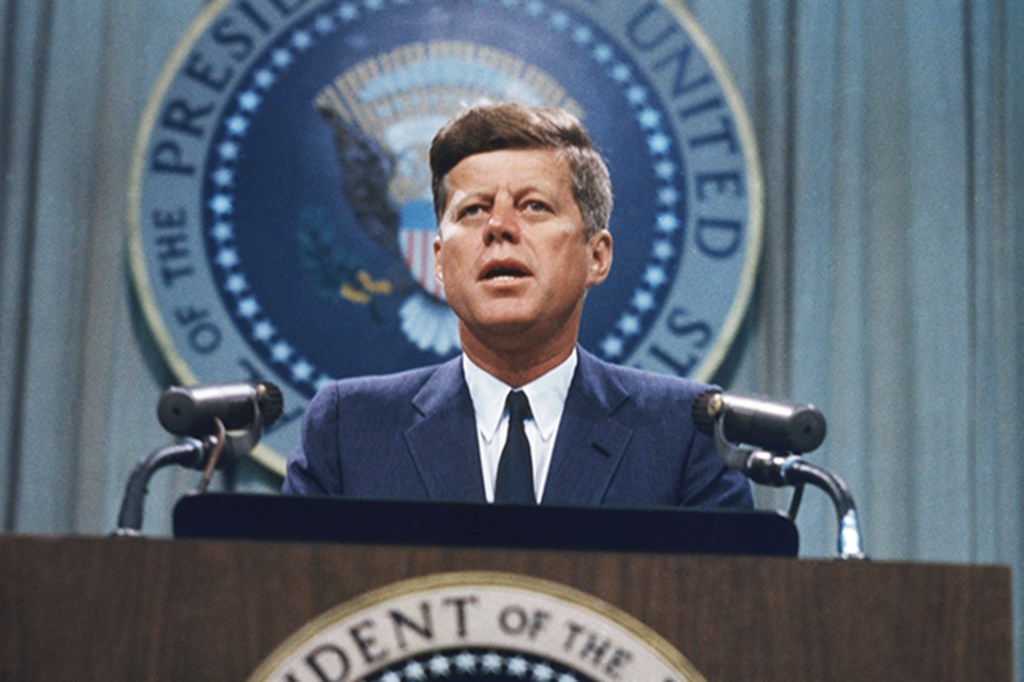Fannie Lou Hamer
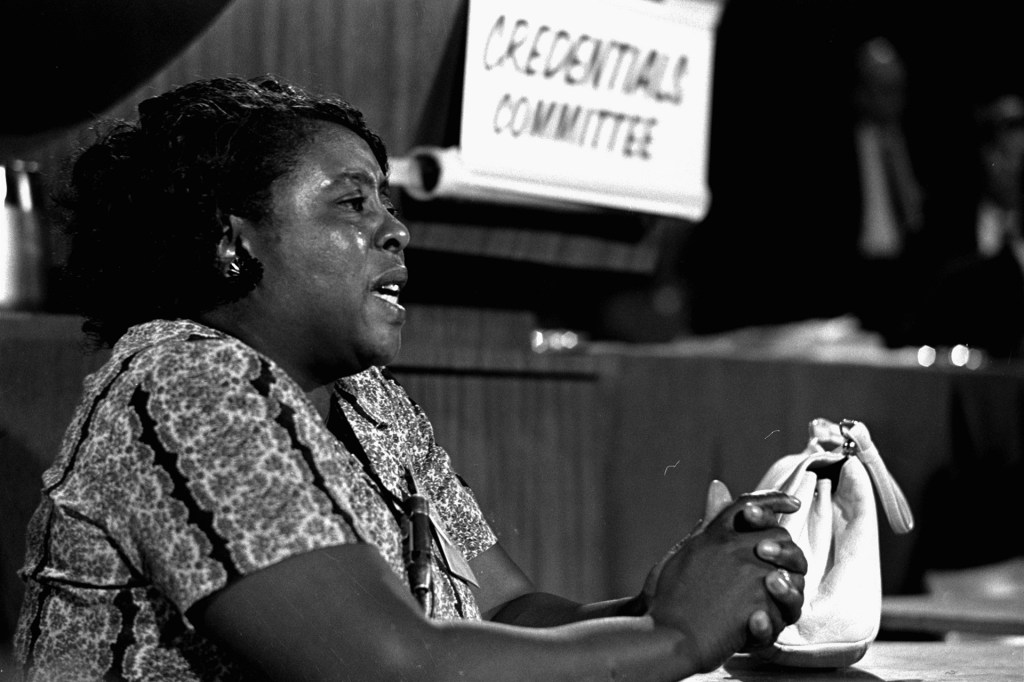
Fannie Lou Hamer (October 6, 1917—March 14, 1977) was a civil rights activist. She fought to expand voting rights for African Americans and raise awareness of the terrible impact of segregation.
As an African American born in the South during the era of segregation, Fannie Lou Hamer faced discrimination and poverty throughout her life. Her parents worked long hours on a cotton farm. Hamer began picking cotton when she was only 6 years old. By 12, she had dropped out of school to work full-time.
Hamer’s life changed when she attended a civil rights meeting in 1962. She was 45 years old. “They talked [during the meeting] about how it was our rights as human beings to register and vote,” she told the New York Times. “I never knew we could vote before. Nobody ever told us.”
The 15th Amendment to the U.S. Constitution—ratified in 1870—granted voting rights to all citizens regardless of “race, color, or previous condition of servitude.” But many Southern states made it difficult for African Americans to vote. They set up poll taxes, which poor people could not afford. In addition, African Americans were often asked to take literacy tests before registering to vote. The tests required potential voters to interpret complex government documents. Many African Americans who attempted to register faced intimidation and violence.
Braving Threats
Despite these threats, Hamer decided to brave the voter-registration process. She and 17 other activists took a bus to the Sunflower County Courthouse, in Mississippi. Officials kept most of the group from registering. Hamer and one other activist were the only ones allowed to complete the paperwork. But both were told they had failed the literacy test.
Hamer’s right to vote was also challenged by her boss at the cotton plantation. He gave her a choice: She could either withdraw her voter-registration application or lose her job. Hamer walked off the plantation. She dedicated herself to the civil rights movement.
Within a few months, Hamer began working as a field organizer for the Student Nonviolent Coordinating Committee (SNCC). The civil rights group advocated against segregation and voter suppression. Hamer traveled around the South educating African Americans about voting rights. She was often met with racist slurs and threats. She was even physically assaulted.
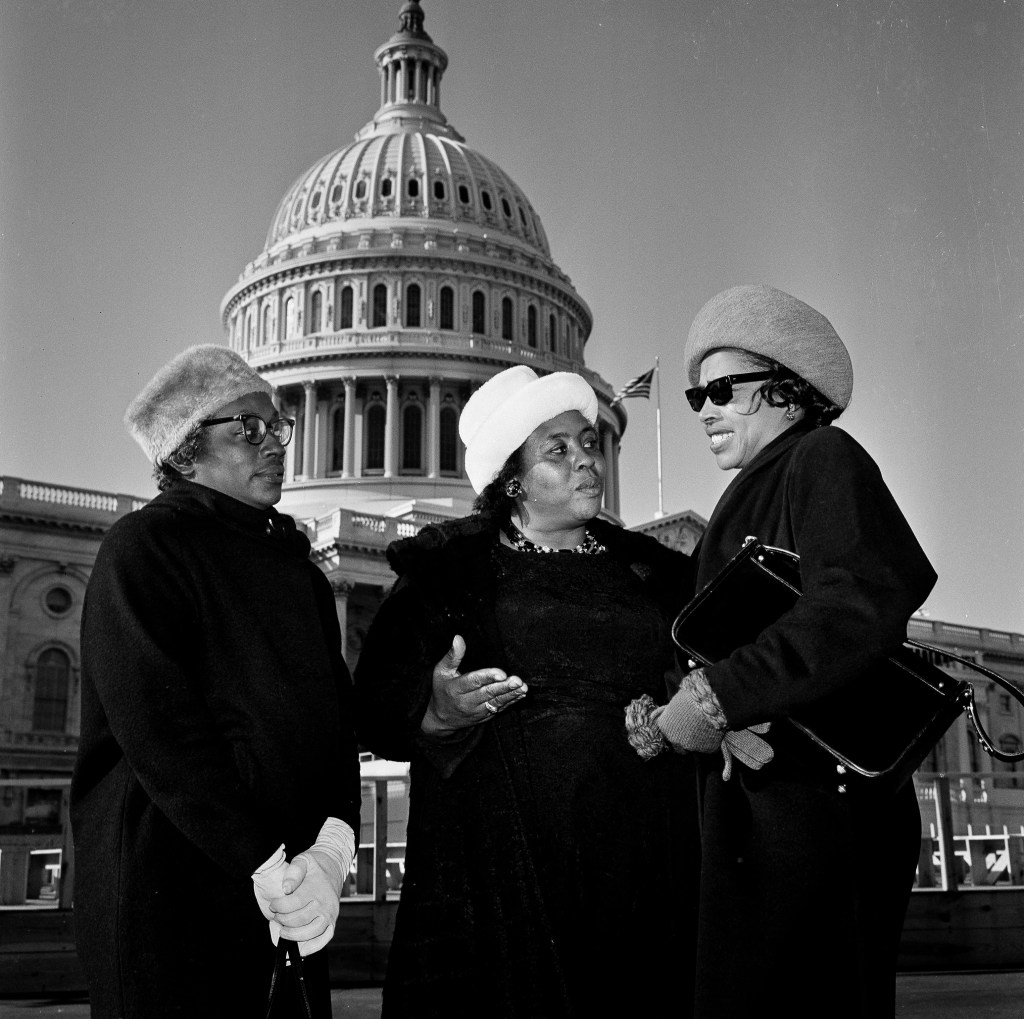
Fannie Lou Hamer (center) meets with Annie Devine and Victoria Gray outside the Capitol on January 4, 1965. The civil rights advocates traveled from Mississippi to Washington, D.C., to increase public understanding about barriers preventing African Americans from voting.
ASSOCIATED PRESSFight for Freedom
In 1963, Hamer was arrested in Charleston, South Carolina, on false charges. While she was in jail, she was severely beaten. It took more than a month for her to recover from her injuries. But she didn’t let the violence stop her from fighting against racial injustice. “I’m never sure anymore when I leave home whether I’ll get back or not. Sometimes, it seems like to tell the truth today is to run the risk of being killed. But if I fall, I’ll fall five feet four inches forward in the fight for freedom. I’m not backing off,” she later wrote in an essay.
In 1964, Hamer organized Freedom Summer. It was a massive effort to help African Americans register to vote in Mississippi. That same year, she helped launch the Mississippi Freedom Democratic Party (MFDP). The MFDP challenged Mississippi’s all-white, pro-segregation delegation at the 1964 Democratic National Convention.
In a nationally televised speech, Hamer explained why the MFDP deserved seats at the convention. “We want to register to become first-class citizens, and if the Freedom Democratic Party is not seated now, I question America,” she said. “Is this America, the land of the free and the home of the brave, where we have to sleep with our telephones off the hooks because our lives be threatened daily because we want to live as decent human beings—in America?”
Hamer’s speech captivated audiences. It helped Americans understand the terrible impact of segregation. Four years later, Hamer achieved her goal. She joined an integrated delegation from Mississippi at the 1968 Democratic National Convention.
Hamer died from cancer in 1977. She was 59 years old. Andrew Young Jr. gave the eulogy at Hamer’s funeral. He was a civil rights leader and the U.S. ambassador to the United Nations. According to the New York Times, Young said that the civil rights movement was indebted to the “sweat and blood” of activists like Hamer. “None of us would be where we are today,” he said, “had she not been here then.”





